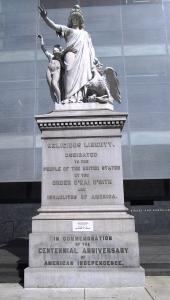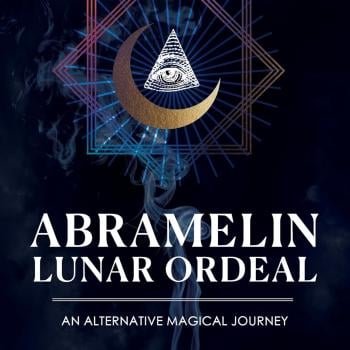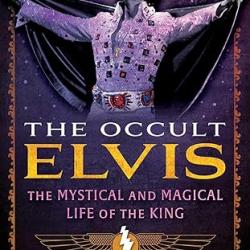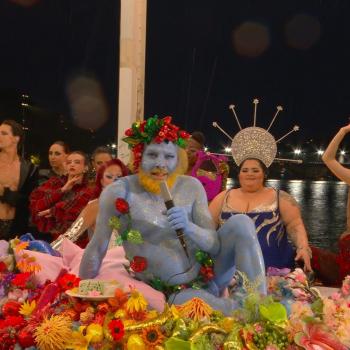Task force to protect Christian rights
On February 6, 2025, The White House announced a presidential action, titled “Eradicating Anti-Christian Bias.”
By way of explanation, “The purpose of this order, to protect the religious freedoms of Americans and end the anti-Christian weaponization of government. The Founders established a Nation in which people were free to practice their faith without fear of discrimination or retaliation by their government.”

“Religious Liberty” is a statue by Moses Jacob Ezekiel commissioned for the 1876 Centennial Exposition and dedicated “to the people of the United States.”
On March 2, 2025, The Catholic Star Herald uploaded “Task force to protect Christian rights stirs debate” by Father Joseph D Wallace to provide a bit of context.
This article pointed out that in early February, 2025, President Donald Trump announced the establishment of a task force focused on addressing concerns regarding a perceived “anti-Christian bias” within the federal government to be led by US Attorney General Pam Bondi.
Trump stated “The mission of this task force will be to immediately hold all forms of anti-Christian targeting and discrimination within the federal government, including at the Department of Justice, which was absolutely terrible, the IRS, the FBI and other agencies.”
He added that Bondi would work to “fully prosecute anti-Christian violence and vandalism in our society and to move heaven and earth to defend the rights of Christians and religious believers nationwide.” He also urged Americans to “bring God back” into their lives.
Trump also established a commission on religious liberty, and said, “If we don’t have religious liberty, then we don’t have a free country.”
The article quoted certain Christian religious leaders who endorse President Trump’s task force aimed at protecting Christian rights, while also quoting other Christian leaders who criticize it for being potentially politicized and marginalizing other faiths.
Further context was provided on February 14, 2025 by NPR which uploaded “Here’s how Trump’s Faith Office and task force against ‘anti-Christian bias’ may work”
The article quotes Professor of Law and Religion Robert Tuttle, at George Washington University, who says what’s really being described in this executive order is a specific conservative version of Christianity.
“It’s about the relationship between Christianity and its perceived mistreatment by the government and the elites that has long been a staple of the Protestant evangelical right.”
Professor Tuttle says “this persecution narrative leads to the false idea that Christians are an embattled minority when, in actuality, about two-thirds of the US identifies as Christian. What’s really going on here … is that the loss of Christian hegemony feels like persecution to these evangelicals.”
Seven Mountain Mandate
The seven mountain mandate, or seven mountain prophecy, is a strategy for cultural engagement popularized by Lance Wallnau and Bill Johnson in their 2013 book Invading Babylon. Since its advent, the perspective has gained popularity, especially among charismatic and Pentecostal Christians. Proponents of the 7M mandate call on Christians to retake seven spheres (or mountains) of cultural influence: religion, family, government, education, media, arts/entertainment, and business. These spheres of influence are a good summary of institutions that shape our culture.
Prominent followers of the mandate who are actively attempting to influence our culture include:
Michele Bachmann, 2012 Republican presidential primary candidate and U.S. representative for Minnesota’s 6th congressional district from 2007 until 2015.
Lauren Boebert, Republican U.S. representative for Colorado’s 3rd congressional district.
Rafael Cruz, pastor and father of Republican U.S. Senator Ted Cruz of Texas.
Butch Hartman, American animator.
Mike Johnson, Republican U.S. representative for Louisiana’s 4th congressional district & Speaker of the House.
Tom Parker, Chief Justice of the Alabama Supreme Court.
Paula White, spiritual advisor to Donald Trump.
Andrew Wommack, evangelical leader.
Pagan Solidarity
In response to President Trump’s task force, in early February 2025, a group called Pagan Solidarity was formed by “respected Pagan elders saw a need to hold ongoing, regular discussions with a broad audience of leaders and practitioners across Pagan communities and interfaith alliances.”
Their mission statement is:
“We are a coalition of elders, leaders, and practitioners of Pagan spirituality, exploring ways to prepare for and respond to political actions in the US that restrict the liberty of marginalized groups. We stand in solidarity with people endangered by rhetoric and capricious legislation to disenfranchise all who don’t conform to narrow ideals.”
The issue is that President Trump’s task force will be addressing the perceived persecution of Christians, but does nothing to address bias against Pagans, Jews, Moslems, Buddhists, Hindus and all other religions.
Usha Vance and Hinduism
I am very surprised by this task force as the second lady is a devout Hindu and JD Vance seems to be very open to it. On September 2, 2024, AP, which is normally thought of as impartial and reliable ran an article titled “Is Usha Vance’s Hindu identity an asset or a liability to the Trump-Vance campaign?”
“Brought up in San Diego by immigrant parents, both professors, in a Hindu household, Usha Vance did confirm that one of their children has an Indian name, and she and JD Vance were married in both ‘an Indian and an American wedding’. The pair met as students at Yale Law School.”
Surely such a task force would not be welcomed by Usha Vance, and the demographic she represents?
Freedom of religion
The First Amendment of the national constitution, part of the United States’ Bill of Rights: “Congress shall make no law respecting an establishment of religion, or prohibiting the free exercise thereof…”. The acknowledgement of religious freedom as the first right protected in the Bill of Rights points toward the American founders’ understanding of the importance of religion to human, social, and political flourishing. The First Amendment makes clear that it sought to protect “the free exercise” of religion. “Religion” should refer to all religions, not just certain varieties of Christianity.
The United Nations also states that freedom of religion is a basic human right:
“Freedom of religion is the right to choose what religion to follow and to worship without undue interference. This fundamental right is guaranteed by article 18 of the Universal Declaration of Human Rights, article 18 of the International Covenant on Civil and Political Rights and the Declaration on the Elimination of All Forms of Intolerance and of Discrimination Based on Religion or Belief. Freedom of religion or belief has many dimensions and intersects with other human rights, such as the right to freedom of expression or the right to life.”
If this presidential action is an attack on religious freedom, it cannot be ignored but must be responded to. Pagan Solidarity should be applauded for leading the way.
Tony Mierzwicki
Author of Hellenismos: Practicing Greek Polytheism Today and Graeco-Egyptian Magick: Everyday Empowerment.
https://www.amazon.com/Hellenismos-Practicing-Greek-Polytheism-Today/dp/0738725935
https://www.amazon.com/gp/product/1905713037/ref=dbs_a_def_rwt_bibl_vppi_i1















